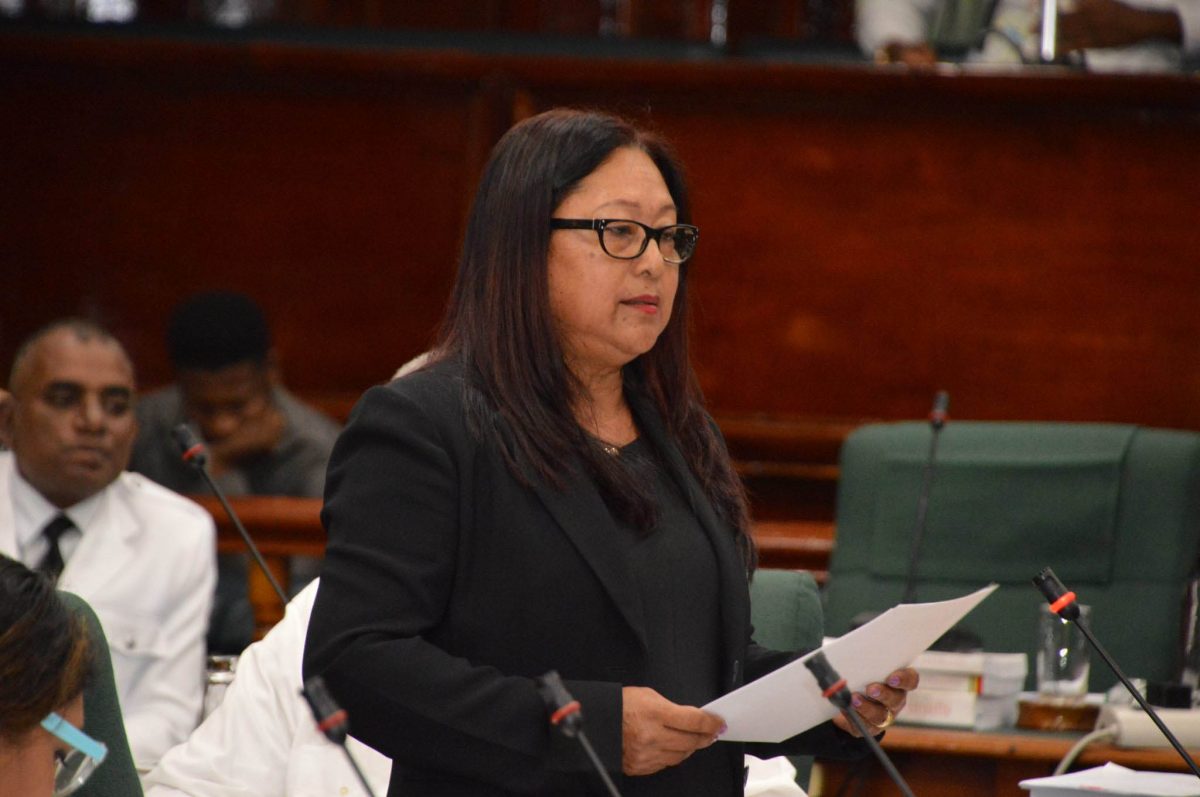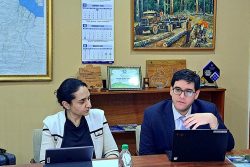Even as the Auditor General continues to flag the Ministry of Amerindian Affairs for the poor management of the Amerindian Purpose Fund (APF), subject Minister Pauline Sukhai says it is the “wrong time” to discuss the issues with the fund.
“This is the wrong time to discuss that (report). That report was not under our government and I cannot discuss it at this time. It has been a long time and I have not seen that,” she said during a brief telephone interview yesterday.
When this newspaper pointed out that the findings were contained in the Auditor General’s Report for the 2020 financial year which included 5 months of management under the PPP/C government, Sukhai maintained that it was the “wrong time” to discuss the report and that she has not seen it as yet.
“That (report) has not been laid in Parliament as yet,” Sukhai said even though the report was tabled in the National Assembly on Monday December 13, 2021.
“I still have not seen it. I cannot discuss this at this time. It is the wrong time and the PAC (Public Accounts Committee) will look at the report. I am sorry I can’t be of much help at this time,” she added before disconnecting the call.
The Auditor General urged that the Ministry employ proper management systems to ensure that the fund is adequately accounted for.
The APF was established by virtue of the Amerindian Act Chapter 29:01 of 2000. Section 30 of the Act states that “the fund shall be expended by the Chief Officer solely for the benefit of the Amerindians of Guyana in such a manner as the Minister may from time to time direct, but no expenditure for which provision has been made in the annual estimates of Guyana shall be borne by the fund.”
Section 31 adds, “The accounts of the Fund shall be kept by the Chief Officer who shall prepare an annual account of the receipts and payments of the fund made up to the 31st December in each year, together with a statement showing the investments and the cash balance of the fund as certified by the Accountant-General, and of any other assets of the fund…”
This Act was later repealed by Section 84 of the Amerindian Act (2006), which had not in itself provided for the operation of the Fund. The original Act, at Section 29, required the preparation of financial statements and an audit by the Auditor General. These, even though not captured in the current Act, are best practice requirements of any accounting process, but were never satisfied since the establishment of the Fund, according to the Auditor General’s report.
Auditor General Deodat Sharma said that “over the years, observations were made in relation to the significant sums of moneys which was received and expended from the Fund, and the Ministry’s continued poor financial management of the Fund. While the current Act has no provision for the APF, the Ministry failed to put measures in place for the proper use, record-keeping and management of the Fund.”
He recommended that better systems be put in place for the management of the fund while noting that the Amerindian Affairs Ministry maintained a cash book that was not balanced nor reflected an opening balance of the fund at the beginning of the fiscal year. Additionally, the ministry failed to reflect a closing balance at the end of the year which is December 31, 2020.
The AG’s report also revealed that the Fund’s bank account was last reconciled in November of 2009. It was recommended that the Head of the Budget Agency reconciles the account at the earliest time possible and that the results be submitted for audit. In response to the findings, the Ministry explained that in 2016, members from the Special Organised Crime Unit (SOCU) demanded all of APF’s records prior to 2014. However, the Ministry has been maintaining documents associated with this account since then.
The AG said that an examination of receipts and payment vouchers, presented, revealed that $23.88 million was received as revenue with $18.379 million being expended. The bank statements for the fund showed that it had an opening balance of 27.463 million at the beginning of 2020 and closed off the year with 32.928 million.
It added that in the expended sum, $17.653 million was paid over to the Hururu Village Council to offset expenses for the year 2020. Hururu Village is located along the Berbice River where bauxite mining is its major economic activity. According to the ministry, the payments represent royalties paid by RUSAL through the Ministry for the Hururu Village Council. The Ministry further explained that documents to accounts for those funds are available.
However, the AG said that his office could not determine whether the monies which were paid to the Council were utilized for their intended purpose since the documentation was not submitted for audit. The report indicated that COVID-19 restrictions prevented a physical visit to the village to examine the records.
The Ministry was still to recover 71 advances totalling $26.572 million that were issued from 2015 to 2017 from the Fund.
“The Audit Office is still to receive the progress report with respect to the construction of a pavilion at Aranka, Region №. 1. The sum of $1M was reportedly used for the construction. The Head of Budget Agency had stated that an investigation was ongoing on this matter. Whilst, the Audit Office had recommended that the investigation report be submitted for examination. However, up to the time of reporting in September 2021, the report was not submitted,” the Auditor General’s report stated.
The issue of mismanagement of the APF has been in the public domain since its establishment.
Section 51.3 of the Amerindian Act of 2006 states, “The Geology and Mines Commission will transfer 20 per cent of the royalties from (the) mining activities to a fund designated by the Minister for the benefit of Amerindian Villages.”
It is unclear as to whether that is being adhered to. Recently, questions were raised by Deputy Speaker of the National Assembly Lenox Shuman on this matter.
Shuman, via a letter to this newspaper, accused both the PPP/C and APNU+AFC governments of being unable to account for the monies in the fund.










